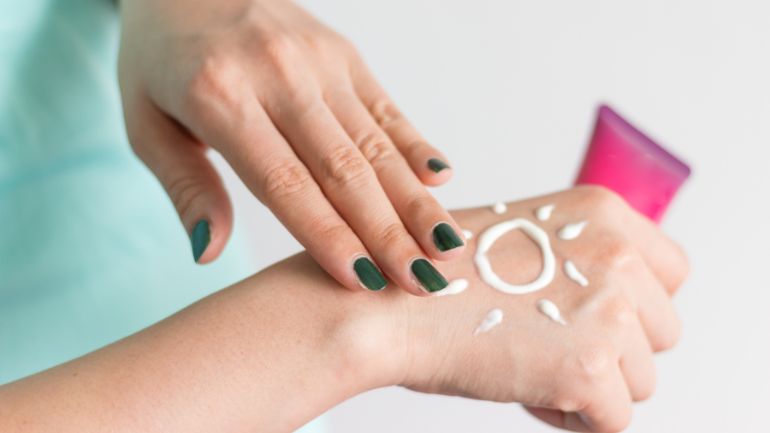Whether or not you intend to spend time outdoors, sunscreen is an indispensable skincare product that should be used daily. The truth is that harmful UV rays can harm your skin even on cloudy or rainy days, even though most people associate sunscreen with beach days and outdoor activities.
In actuality, skin damage, skin cancer, and premature aging are all primarily brought on by exposure to the sun's UV rays. Nevertheless, although wearing sunscreen has numerous advantages, many people neglect to include it in their daily skincare routine. The truth is that skipping out on sunscreen can negatively affect your skin health.
Whether because you don't understand its significance or think it's unnecessary on days when you're not spending time outside. This blog will examine why sunscreen is important for your daily skincare routine and why it's not just for the beach. We'll examine the various types of sunscreens on the market and go over the necessity of wearing sunscreen constantly.
We also offer advice on how to pick the best sunscreen for your skin type. By the time you finish reading this blog, you'll know more about the importance of sunscreen for protecting your skin and how to use it every day for the best possible skin health.
How Does Sunscreen Help?

Sunscreen is an essential skin care product that helps protect your skin from the harmful effects of the sun's ultraviolet (UV) rays. Here are some ways that sunscreen can help:
- Prevents skin damage: Sunscreen helps prevent skin damage caused by exposure to UV rays. This damage can include sunburn, premature aging, and even skin cancer.

- Reduces the risk of skin cancer: Regular use of sunscreen can reduce the risk of developing skin cancer, including melanoma, the deadliest form of skin cancer.

- Shields against UVA and UVB rays: Sunscreens are designed to protect your skin from both UVA and UVB rays. UVA rays can cause premature ageing and wrinkles, while UVB rays are responsible for sunburn.
- Minimises hyperpigmentation: Sunscreen can help minimise hyperpigmentation, when your skin produces more melanin in response to UV exposure, leading to dark spots and uneven skin tone.
- Helps prevent the development of wrinkles: Sunscreen can help prevent the development of wrinkles by protecting your skin from the sun's harmful UV rays.
- Reduces the appearance of existing wrinkles: Sunscreen can also help reduce the appearance of existing wrinkles by preventing further damage to the skin.
- Helps prevent photoaging: Photoaging is when your skin prematurely ages due to UV exposure. Regular use of sunscreen can help prevent this type of ageing.
- Maintains an even skin tone: Sunscreen can help maintain an even skin tone by preventing hyperpigmentation and the development of dark spots.
- Improves overall skin health: By protecting your skin from UV damage, sunscreen can help improve overall skin health and prevent various skin issues.
How Does SPF Help Skin?
SPF, or Sun Protection Factor, measures how well a sunscreen protects your skin against harmful UV radiation from the sun. Sun damage can lead to premature ageing, dark spots, and even skin cancer, so using products with SPF can have significant benefits for your skin. SPF forms a protective barrier on your skin that absorbs and reflects UV radiation.
The number associated with SPF refers to the time you can spend in the sun without getting burned while wearing the product. For example, an SPF of 30 means you can spend 30 times longer in the sun before your skin starts to burn than if you weren't wearing sunscreen. Regular use of sunscreen with SPF can provide a range of benefits for your skin.
It can help to prevent sunburn, reduce the risk of skin cancer, and slow down the ageing process. UV radiation damages collagen, a protein that helps keep your skin looking plump and youthful. By protecting your skin from UV damage, SPF can help to keep your skin looking smoother, brighter, and more even-toned.
In addition to protecting your skin from UV radiation, many sunscreens contain other beneficial ingredients, such as antioxidants, vitamins, and moisturisers. These ingredients can help to nourish and hydrate your skin, leaving it feeling soft, supple, and healthy. Choosing a sunscreen with an appropriate SPF for your skin type and the level of sun exposure is important.
If you're spending a lot of time in the sun, you may want to choose a higher SPF and frequently reapply to ensure maximum protection. Overall, using products with SPF can have significant benefits for your skin, including reducing the risk of sun damage, premature ageing, and skin cancer.
Is it Necessary to Use Sunscreen in Summer?
Many think sunscreen is only required in the summer when the sun is intensely scorching. But this is a typical misunderstanding. Sunscreen should be a year-round necessity in your skincare routine because it is just as necessary in winter as in summer. Even when it's chilly and cloudy outside, the sun's UV rays are just as potent in winter as in summer.
These UV rays can harm your skin and cause premature ageing, wrinkles, and even skin cancer because they can pass through clouds. Hence, sunscreen should always be applied to exposed skin, no matter the weather. By incorporating SPF into your daily skincare routine, you can help keep your skin healthy and youthful for years to come.
Conclusion
Finally, it's essential to understand that sunscreen isn't just for the beach; it should also be part of your daily skincare routine. The sun's UV rays can damage your skin and cause various problems, including premature ageing, sunburns, and even skin cancer. As a result, whether you're indoors or outdoors, protecting your skin from these harmful rays is critical.
You can protect your skin and prevent sun damage by incorporating sunscreen into your daily skincare routine. You should use broad-spectrum sunscreen with an SPF of at least 30, which will protect your skin from UVA and UVB rays. Additionally, apply sunscreen 15-20 minutes before going outside and reapply it every two hours, especially in the summer.
Finally, sunscreen is essential to your daily skincare routine, and its significance cannot be overstated. By shielding your skin from the sun's harmful rays, you can maintain healthy, youthful-looking skin and lower your risk of skin problems like sunburn, premature ageing, and skin cancer. So, ensure sunscreen in your daily routine to stay safe all year.































Please complete your information below to login.
Sign In
Create New Account